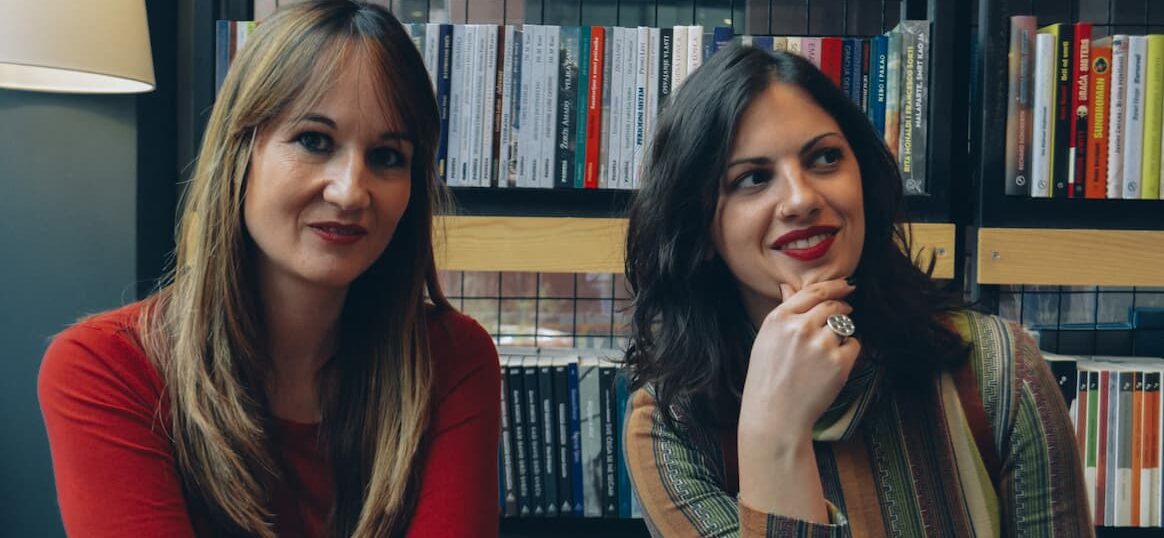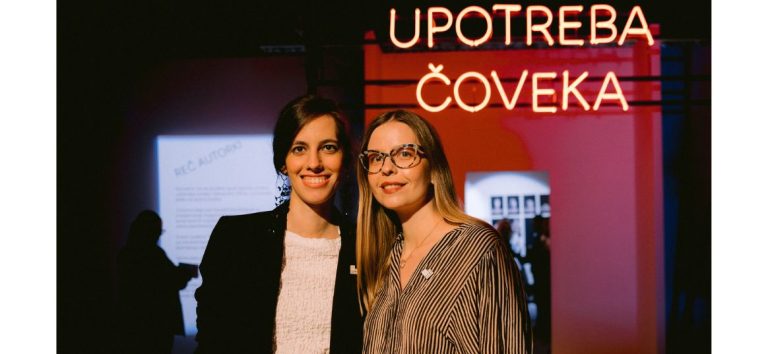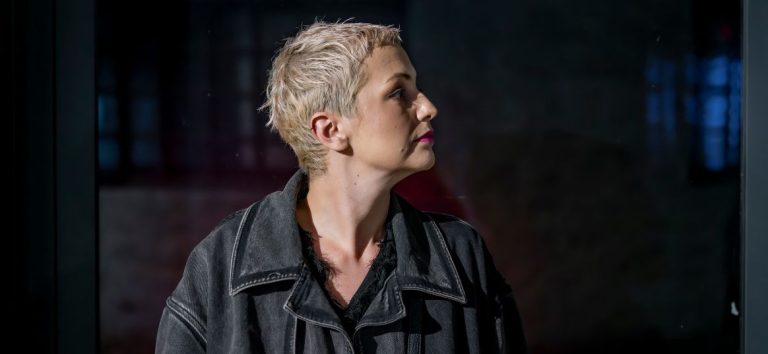The third Autonomous Festival of Women (AFŽ) will be organised at the Museum of Contemporary Art of Vojvodina, from 6 to 12 June. The festival was created in 2020 with the idea to open the public space to marginalised topics – violence against women, women’s labour rights, women’s health care, the position of women in art, science, entrepreneurship, as well as women’s creativity. This year’s festival is realised with the support of the ‘Novi Sad – European Capital of Culture’ Foundation, which is implementing the Heroines programme dedicated to women’s culture, art, creativity, and heritage, in order to create a fairer and more gender-equal society, during May and June.
The rich seven-day programme of AFŽ, which consists of workshops, spoken word programme, performances, exhibitions, films, and concerts, will be presented to us by some of the founders of the festival, Milica Kravić Aksamit and Tamara Srijemac, and we warmly suggest you visit a few of the following events.
What can we expect from the third AFŽ? What are the themes of the festival narrative and is the tone optimistic?
Milica: In the broadest sense, the festival deals with the position of women in our society and society in general. That woman who works constantly, all day long, all her life, that unpaid women’s work, the ‘lifelong work’, as we have addressed it, occupies us and interests us the most. That is the motto of the festival or the leitmotif that connects all the different segments of the programme. We are basically interested in how a woman feels and what she does as an artist, scientist, social worker, psychologist, journalist, craftswoman, entrepreneur, and the like. We will give answers to that question all seven days of the festival through a programme that includes all these women and presents their work. We are optimistic about the idea of what a woman can and is able to do, but society’s attitude towards women’s work hurts us more than it satisfies us.
Tamara: In any case, optimism shows up whenever we meet, when all these women, who Milica just mentioned, meet. I am encouraged when I see how many women are involved in certain important things, who are successful in various fields, who are ready to point out shortcomings in society and to fight for human rights and feminist values. This is a great value of AFŽ. This year, once again, we will gather, exchange opinions and experiences, listen to each other and network. It is important to hear and articulate different actions.
How do you create the programme? What criteria do you try to meet while making the selection?
Milica: The peculiarity of AFŽ is that many women, individuals, and organisations participated in the creation of the programme. All of them proposed and designed their own segment of the festival, so philosophers and writers created a conversational and theoretical part, psychologists, media, and film workers designed workshops, and artists proposed content from the domain of their way of expression – so we created the AFŽ as we have it now together. Extensive, rich, diverse, sensitised, and intended for everyone, not only women but definitely for those who want a better position for women and marginalised groups in our society and are interested in these and similar topics.
Tamara: In addition to all that, the criterion is that creativity and art at the festival be inclusive, sensitized to the position of women in society, marginalised groups, and problems from the margins in general. This is common to all women who participated in the selection. We all nurture feminist principles and each in her own way, and in her own work, thematises issues such as violence against women, women’s labour rights, health care, the position of artists, entrepreneurs, etc. The programme is diverse, but it is very harmonised and unique in terms of the values it promotes.
The festival programme is certainly best when viewed as a whole, but are there maybe some programmes that you would like to single out?
Milica: The festival really offers a very diverse programme, and it is just a matter of taste when it comes down to choice. Personally, it is very important for me to hear what scientists have to say on the topic of feminism, anti-capitalism, and the position of a worker within the spoken word programme ‘24/7 Working Woman’. On the other hand, I am incredibly excited for the concerts. We are bringing Elemental, which is one of my favourite bands, not to mention an evening of choirs. No, this makes no sense, if I go on, I will list all the segments of the festival – we had a great desire to experience all these programmes in our city.
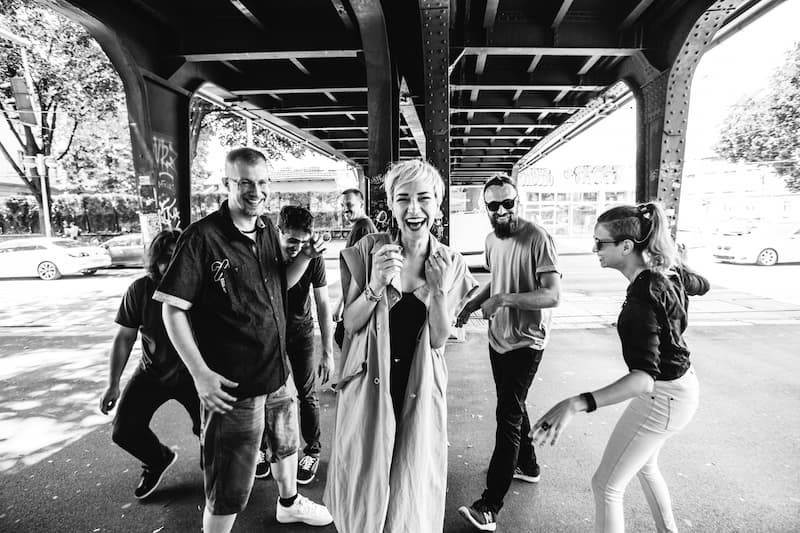
Tamara: From Ida Pester, the film ‘Quo Vadis Aida’, the performance ‘A Good Worker’s Place’, to the Literary Afternoon – everything is enormously important to me. Further, I think it’s great that the programmes are interconnected and all happening in one place. Someone who comes to the film projection will also take a look at the Women’s Bazaar or for example, Zombijana Bones’ exhibition. In addition, the timings do not overlap, so it is possible to see everything. All of it is really worthwhile.

How extensive is the network of feminist and activist organisations that deal with women’s issues in our country and to what extent do you cooperate with them?
Milica: One of the goals of the festival is to get to know the other co-fighters. That is why the official guests of the festival are in fact the creators of similar feminist festivals in the country and in the region. Each of our republics has one or more festivals, so, on that side, the scene exists, and we are the youngest part of it. On the other hand, during their joint stay in Novi Sad, we will try to find out for ourselves how sustainable that scene is and how much power and money the activists have. I am quite sure that our sector of feminist activism is undervalued and overburdened. However, I leave room for new live assessments, in conversation with the ‘sisters’ from Belgrade, Tutin, Niš, Sarajevo, Zagreb, and Ljubljana.
Tamara: For the third year in a row, we have been trying to connect with feminist communities, organisations, and individuals on the local scene. AFŽ was created as a result of that. We are not even close to the level of togetherness and connection we would like, but we are not giving up.
Is there enough interest? Who is AFŽ intended for? Is there room for dissidents?
Milica:Dissenters might be even more needed. It would be fantastic if the programme was visited by those who are not involved with the subject of feminism, and may not know what it means at all, and even those who have strong prejudices contrary to ours, but I think that happens less often . More often than by dissidents, there is a possibility of such contents to be visited by individuals eager for provocations, and I am not looking forward to that at all, and in a way, I am hoping that it will not
happen. So far, our audience has been similar to us, with matching beliefs and mostly female. For me, of course, that is beautiful, and I really like our already distinguishable support group. However, I would really like many more men to support the programme, open their minds to the conversation, and mutual learning and growth.
Tamara: This year, AFŽ will be having a musical part of the festival for the first time, among others, which has attracted an audience that would not intentionally come to let’s say, panel discussions. In that way, we are expanding our reach. By coming to the concert or to the Women’s Bazaar, someone might stay unplanned at some other events, or at least by coming to the festival they will receive a flyer from the Centre for Emotional Support and Suicide Prevention ‘Srce’, SOS Women’s Centre, or anti-trafficking organisation Sloboda nema cenu (Freedom Has No Price). That is why this ‘under one roof’ concept is important to us. I believe that the turnout will be solid, and AFŽ is really intended for everyone, although many may have prejudices and do not perceive these contents as universal and important for everyone. I am of the opinion that children should be taught about feminism in schools, so it is clear that I think that everyone should come to AFŽ, except provocateurs, who Milica had already mentioned.
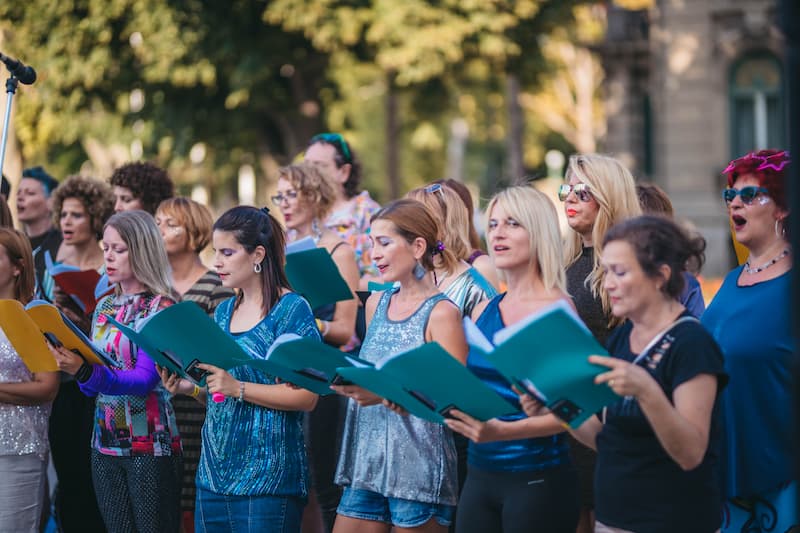
This year’s AFŽ takes place during Heroines, the European Capital of Culture programme arch that celebrates women who have accepted and spread European ideas of enlightenment, equality, feminism, and emancipation locally – Milica Stojadinovic Srpkinja, Mileva Marić Einstein, Milica Tomić, Marija Trandafil, and others. Who are your heroines and why?
Milica: I meet my heroines daily. They really are women from my environment from whom I learn and with whom I converse with. For me, there is no mystique about it. They are my friends and my mom. And to be honest, almost all the heroines from Novi Sad whom I admired for their success and the kind of people they are, we have gathered under the AFŽ, or I will see them in the audience.
Tamara: : Along with women from my immediate environment, there are all women who fight violence and manage to get out of the cycle of violence, who lead some of their fights against the system, who struggle in the market, and fight for universal human values, fight with disease… They are all my heroines. And, of course, our predecessors from the Women’s Antifascist Front of Yugoslavia (Antifašistička fronta žena), in whose name we use the acronym AFŽ in the name of our festival. Their legacy is precious, and we must not take it lightly and forget about it
From the personal aspect and from the aspect of society – why AFŽ?
Milica: AFŽ because we want to live in a society that understands others’ differences and needs, that nourishes conversation and learning, which sees women, and their peculiarities, and respects their artistic and scientific views, corrects the centuries-old injustices inflicted on the ‘other sex’ and knows how to have fun with cultural content that is not necessarily easy, but sometimes satirical even, critical, and which activates thought and keeps the spirit fighting
Tamara: AFŽ, because in the fight for gender equality there are no final conquered positions! On a daily basis, we are witnessing how some of the rights that our predecessors fought for are very easily challenged and taken away. That is why it is necessary to use all the means at our disposal to initiate themes and dialogues that Milica mentioned in public space. AFŽ is a public space that we created with that goal.
Author: Jasmina Tomašević
Translator: Ana-Marija Radosavljević
Photo: AFŽ

